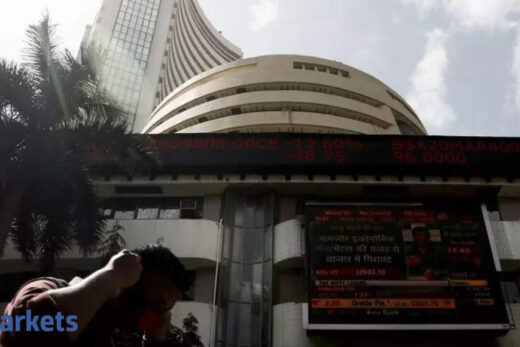What do you think the market should look forward to?
There have been two sets of companies; one set has been cautious in their outlook and those things might not recover the same way as they recovered last year post the lockdown. There is another set which believes that things will come back to normal very fast. That is the challenge for market participants. The pent up demand story this year might not be as strong. The impact of inflation will be real and so even if the results of many of the banks and financials and their commentary has been a bit divergent.
On one hand, a series of NBFCs, banks have come out with results, especially the smaller ones where clearly stress seems to be seen on the balance sheet. On the other side, some have said that they are not seeing that sort of stress. So that is the challenge this time.
My guess is that markets are currently at a stage where valuations are extremely stretched and for markets to move significantly higher from here, we need to see a scenario where globally markets continue to do very well. The current US dollar index revival needs to stall because that is one thing which is getting ignored today because any further significant rally in the US dollar would dent the emerging markets.
Thirdly, we need to see if the results of this quarter pan out the way many optimistic managements are saying because the July to September quarter will be the first quarter where year-on-year relevant comparison will be possible because both quarters will be almost equally normal.
Investors are getting confused because many companies are coming out with not very good results but then saying that July is very good which is expected when you come out from a lockdown. July will see a revival but investors would need to tread cautiously at this stage.
We could still see stress in financials and we need to be more cautious there. There are some companies where the environment is favouring them like . In the telecom sector, it will be the biggest beneficiary of the churn that is happening and it could continue to do well. I have seen huge capital expenditure announcements by a series of companies across the globe. We need to find good ideas in the capital goods segment. Infrastructure investments will continue to be rapid. These are the spaces where we could still find value.
The jury is not out on where Vodafone is headed. We do not know whether it is going towards the NCLT way or whether the AGR is applicable. Is buying Vodafone at Rs 7 an option? If the company survives, it could be Rs 25? If it goes under, it could be Rs 3-4?
It is always about the kind of capital you deploy. If you are investing a lakh or rupees in Vodafone, you could as well invest a lakh of rupees in something like Bharti and there is a greater possible certainty that you will make 15-20% return in a year.
In Vodafone, I do not know and that is what I have been telling people who have been asking me about Vodafone, it is impossible to evaluate that company fundamentally given the AGR dues, regulatory dues combined with the debt. There is virtually no equity value left at this stage.
If the government does something or the regulatory environment changes. Let us say hypothetically that Trai decides to put a floor on tariffs like what happened in the sugar sector, which led to its revival or in case of airlines where as the pandemic started, a floor price was put at which tickets could be sold. We could have a totally different scenario but these are impossible to evaluate. People shouldn’t bet on Vodafone as we do not know anything at all.
Within the power space, clearly is the standalone entity and the Street is pretty upbeat on its prospects going forward. What are your thoughts?
The restructuring in the Tata Group companies and their ability to move into segments such as solar aggressively, has made Tata Power come back quite strongly. No one actually believed that all these power companies would ever perform in India. Tata Power has done reasonably well.
From my perspective, I would not buy it because I believe that in India electricity pricing is still very politically influenced and to that extent we do not really know how these companies will perform over the long run as elections approach. In the near term, given its performance, we might see some more uptick but to have significant upsides in this sector, we would need much more changes.
If Divi’s, an API company, is doing well, then it means that the entire API chain is going to do exceedingly well whether it is smaller businesses like Shilpa or the big companies like Laurus or Granules. Your view?
Yes it is quite incredulous how the profitability of these API companies have been holding up like.Some of them are reporting 30-32% margins. Divi’s is going up to 43- 44% operating margins which the larger pharma companies are unable to do. But pharma is a very specific company story. It is very tough to extrapolate the results of one company into another. Divi’s continues to deliver and that is good for the shareholders of the company. I have not looked at the other companies which you talked of.



